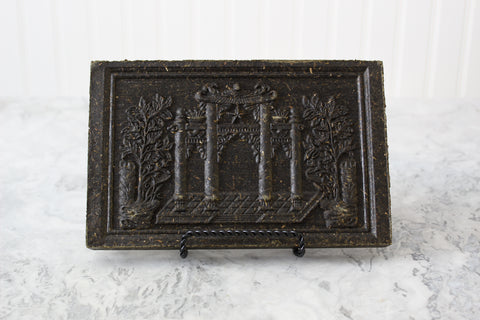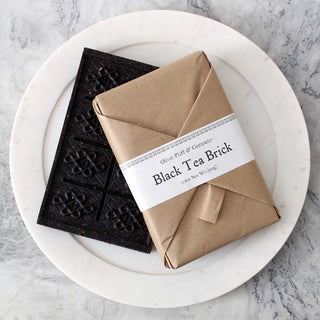
Estimated to be formed around 350 A.D., tea bricks have become a part of Chinese and European culture throughout the ages. Before tea bricks where introduced to Europe, tea bricks were used in China as a form of currency, food, and medicine. From the 9th century on through the 20th century, tea bricks were classified into five different quality categories of value. All the bricks, even to this day, are scored on the back with indentions to allow for easy breakage off the larger block.
When the bricks were assessed for quality, the highest quality bricks were given to the Emperor. There are multiple steps in the process of producing a tea brick. During the Sung dynasty, tea gathering was seen more as a religious ritual that was complex and intricate, taking caution to produce the best quality tea leaves and to avoid any contamination with anything seen as unfit to be within the tea. After the tea leaves were carefully plucked, leaves were then dried. After drying, the leaves were separated from the stems. The leaves were boiled, then left alone to ferment, while the twigs and stems were ground into a fine powder. After the leaves were fermented, the lewooden molds (before metalworking, molds where made of wood), then pushed through fire before an aging process began.
Tea brick flavor and price appreciates with aging, much like wine.


